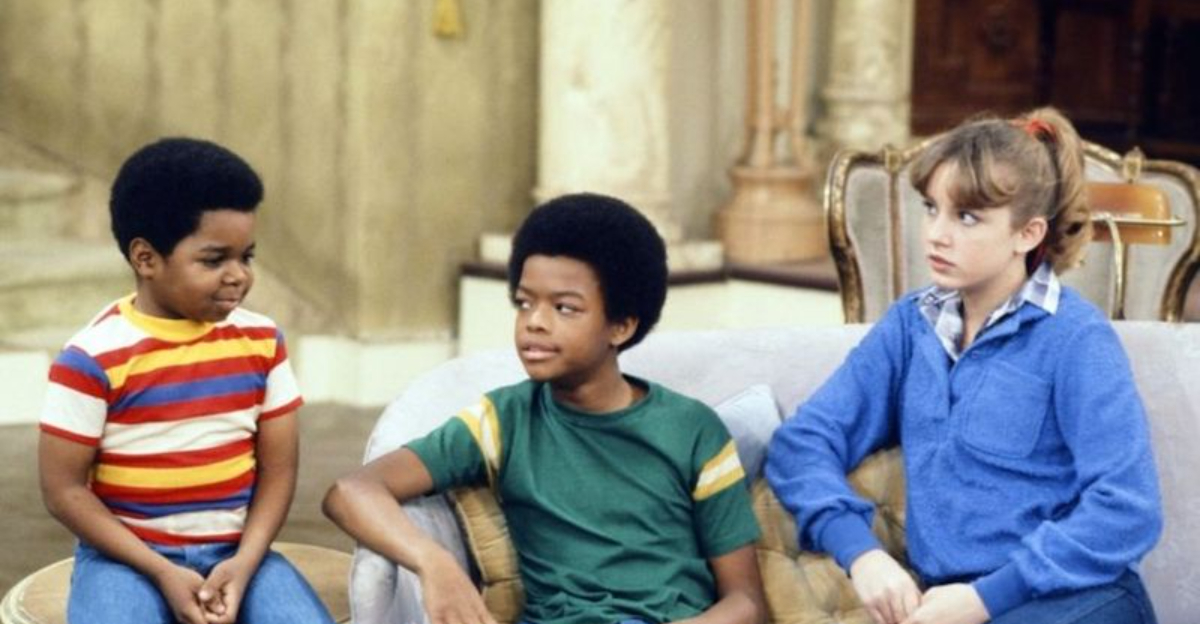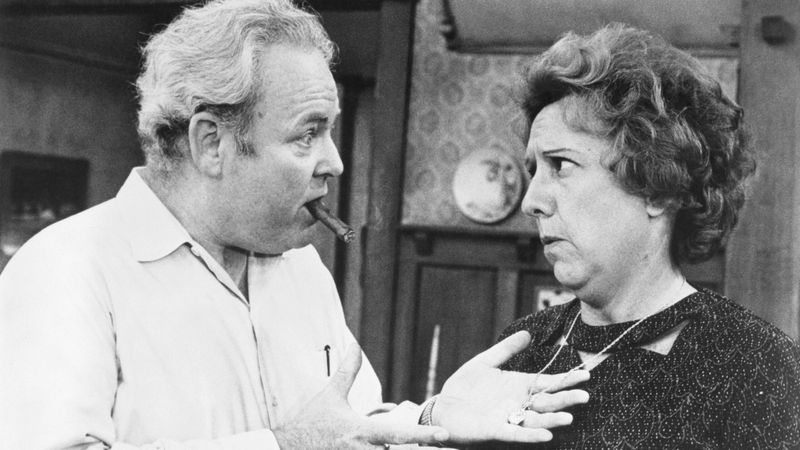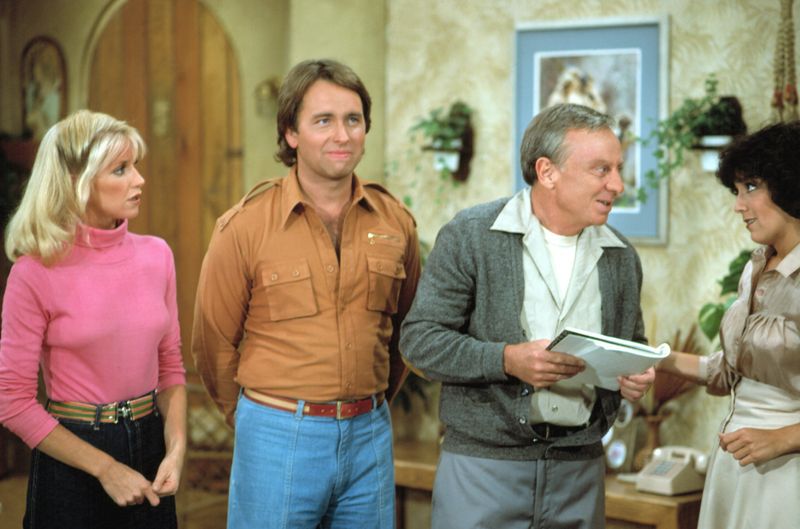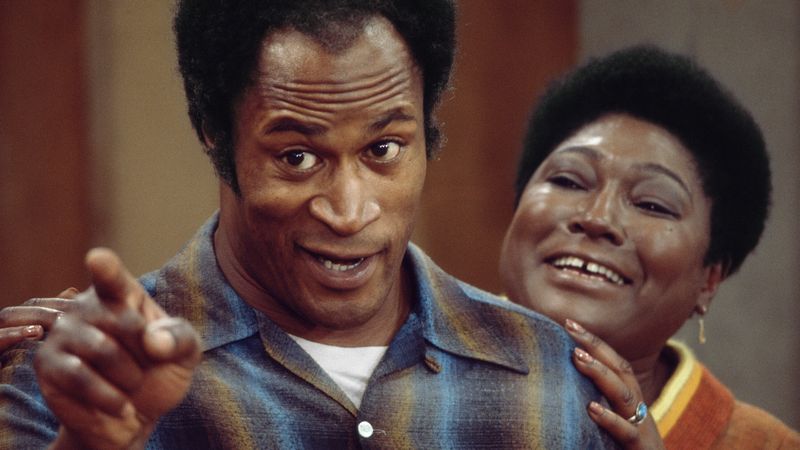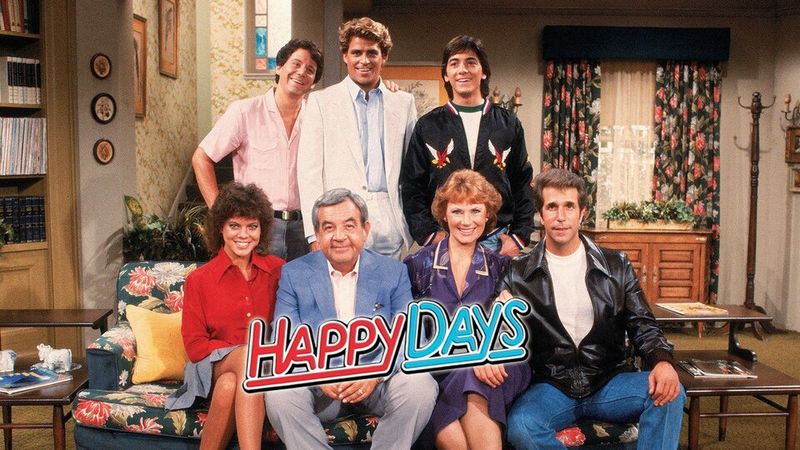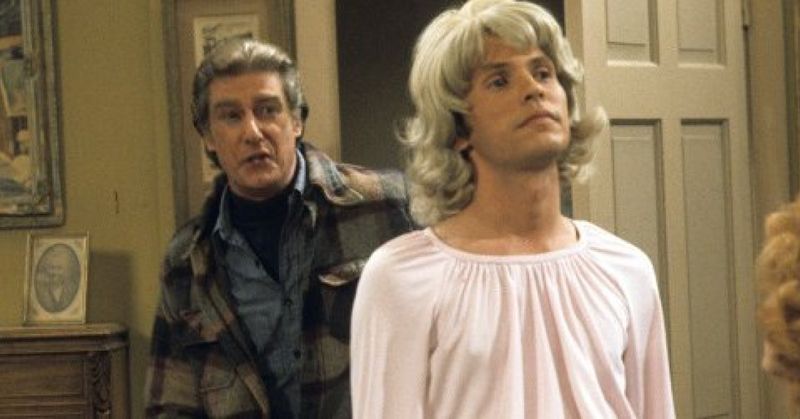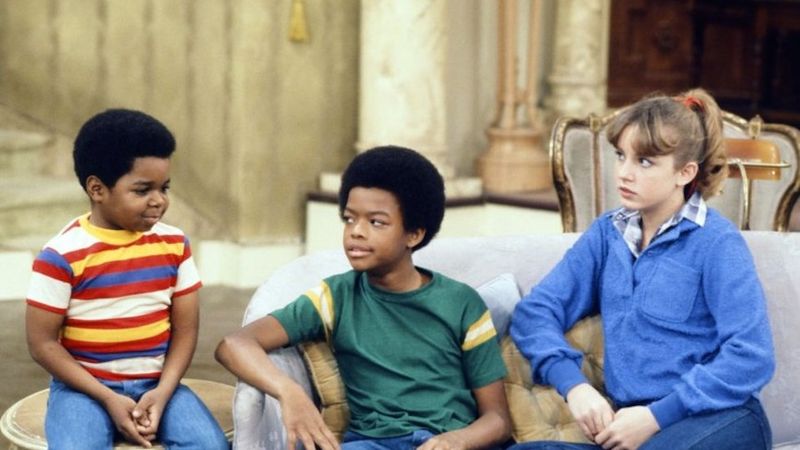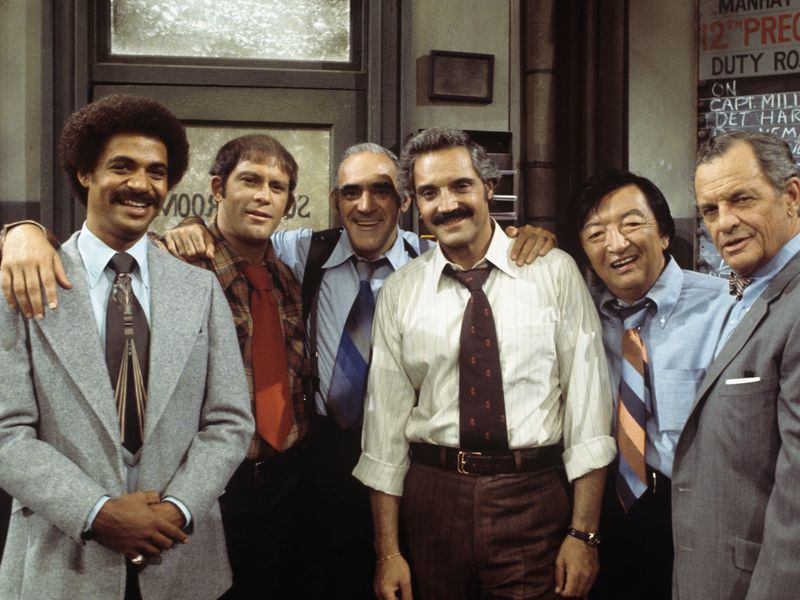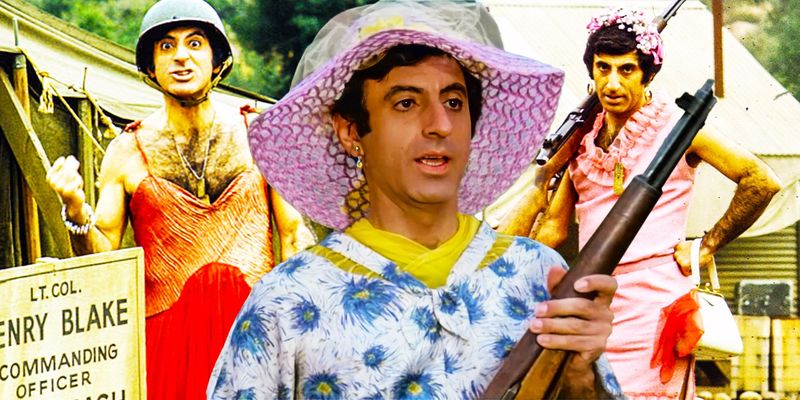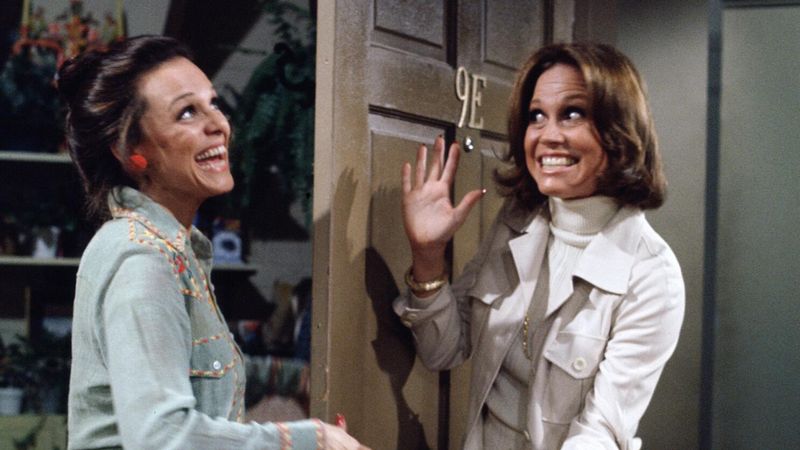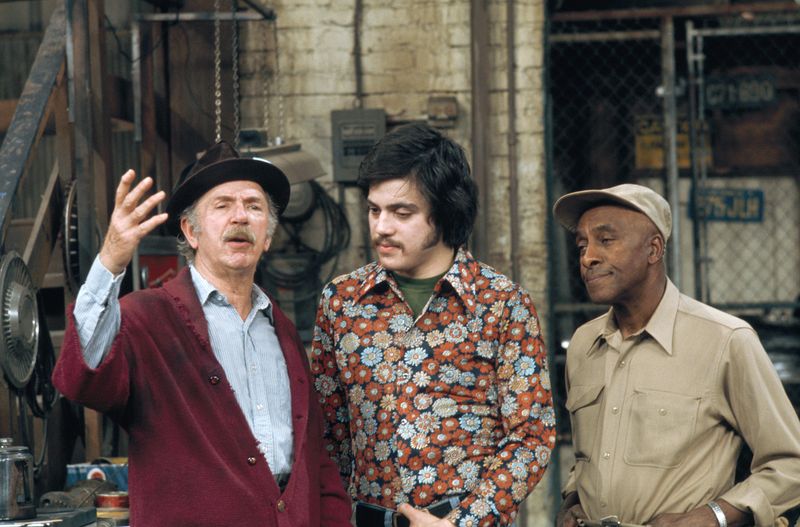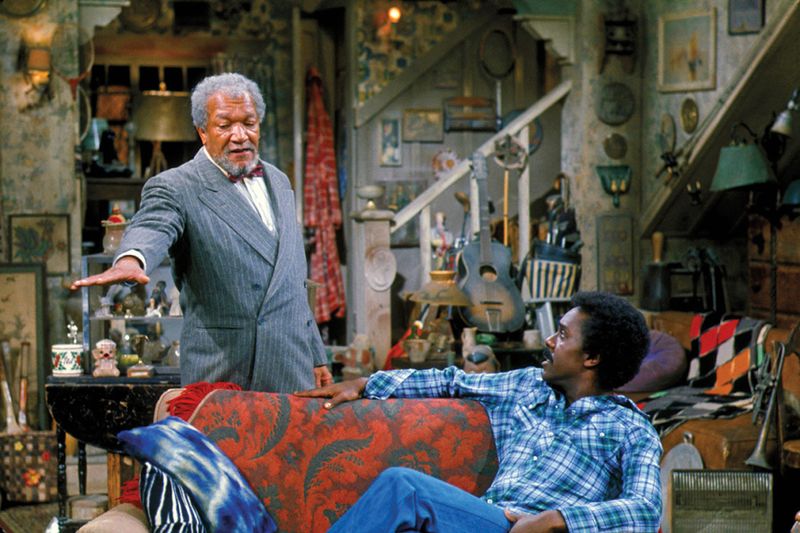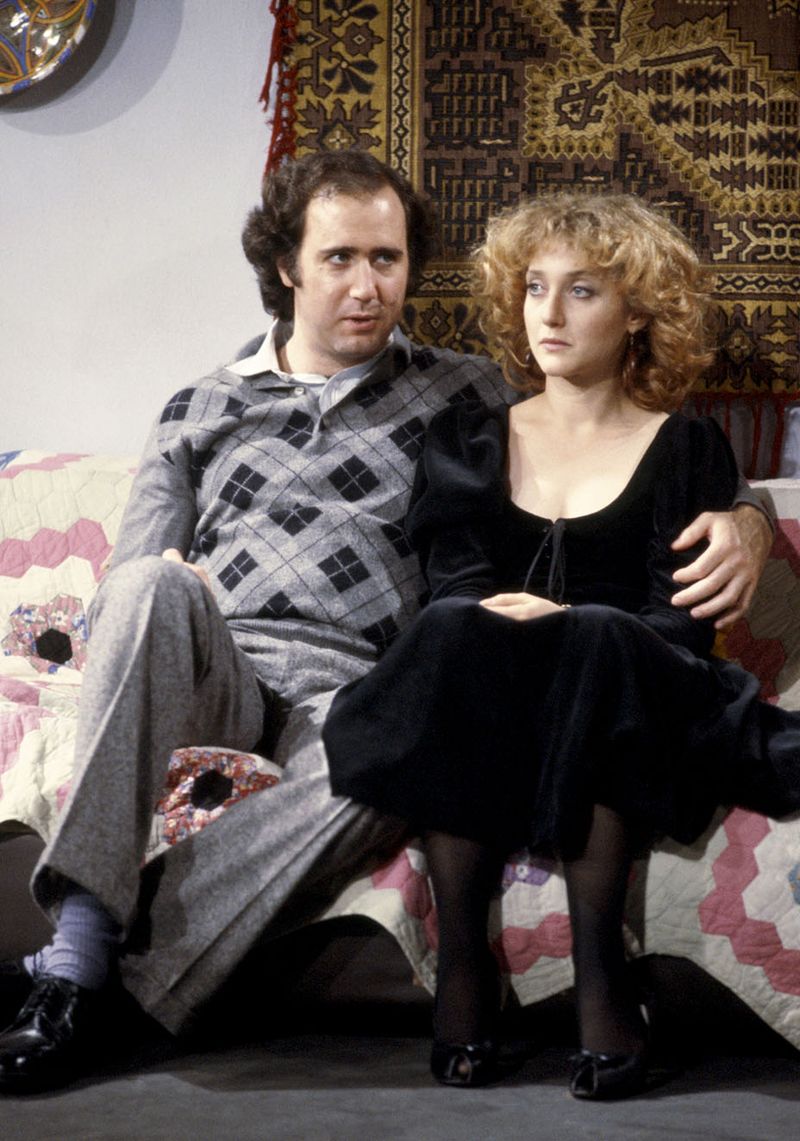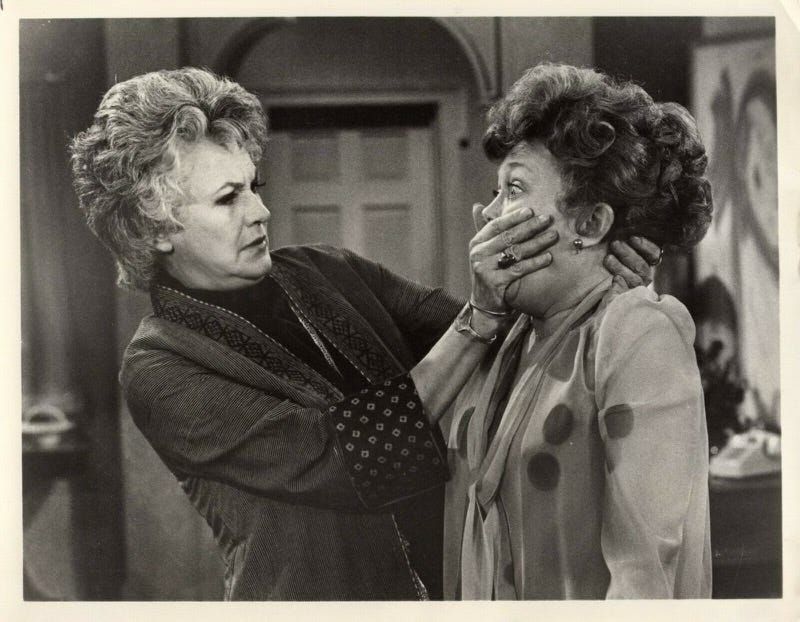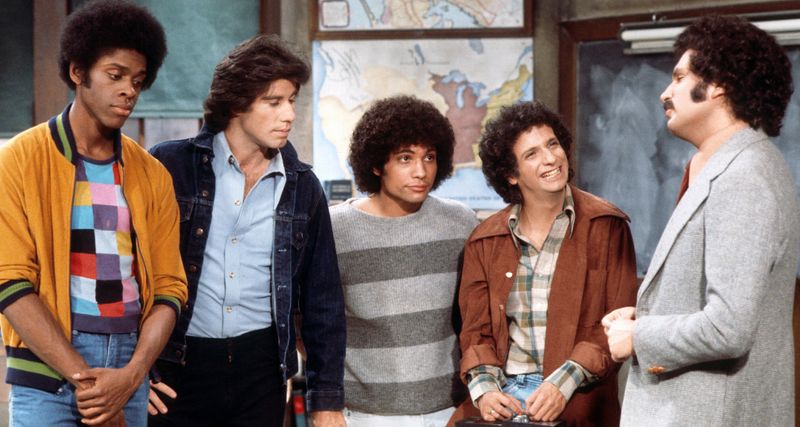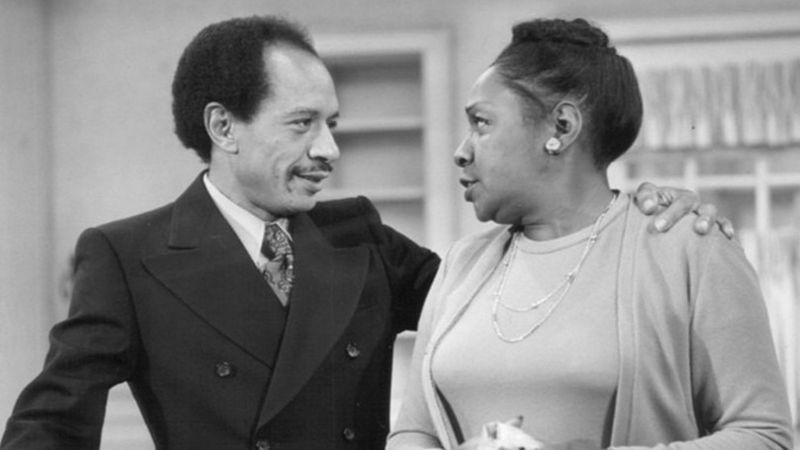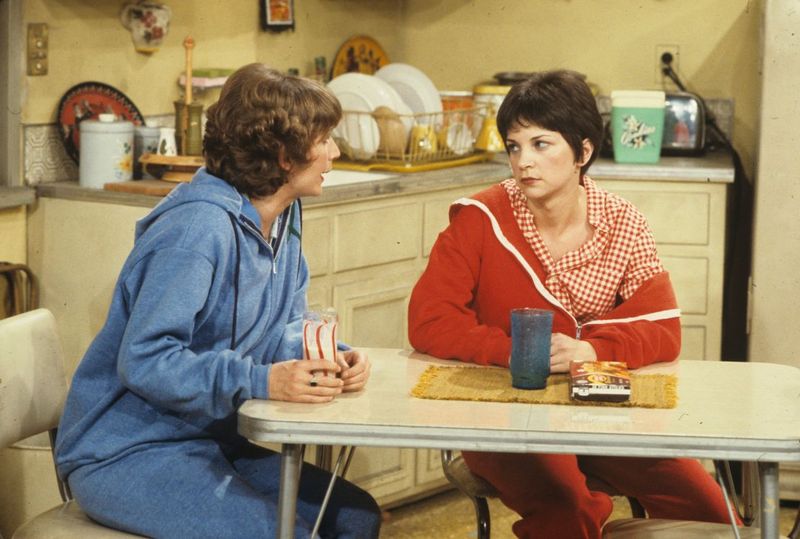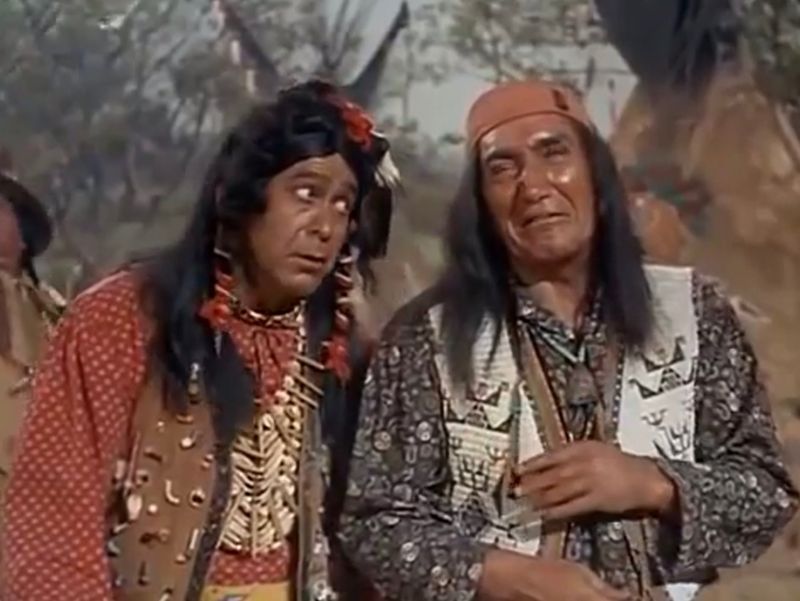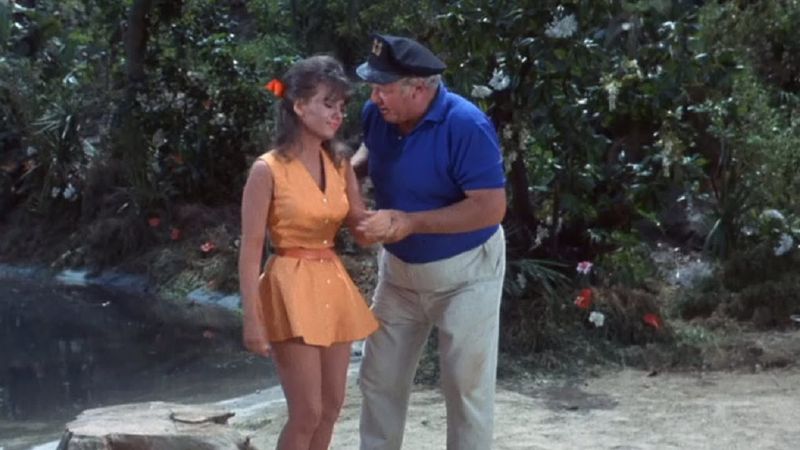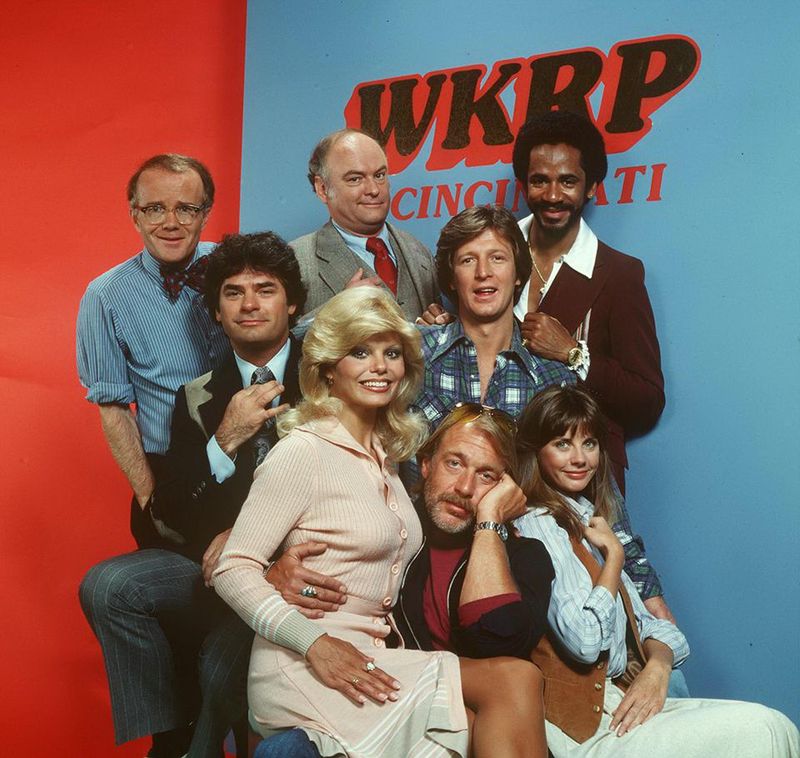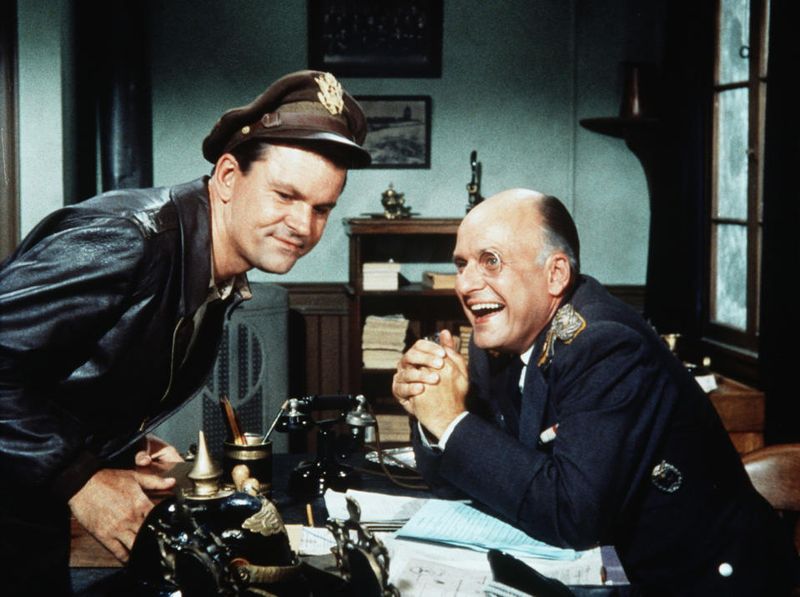The 1970s brought us groundbreaking sitcoms that pushed social boundaries and challenged cultural norms. But some of the jokes, storylines, and portrayals that once drew laughs would raise serious eyebrows today. Whether it was casual bigotry, inappropriate power dynamics, or just plain cringe-worthy moments, these 21 scenes wouldn’t survive modern TV standards.
1. Archie Bunker’s Racial Rants – All in the Family
Archie Bunker, the loudmouthed patriarch, often spewed racial slurs and stereotypes under the guise of satire. While the show aimed to critique bigotry, many moments feel uncomfortably unfiltered today. His rants, though intended to expose ignorance, often missed the mark by reinforcing stereotypes. In today’s world, his character would likely face serious backlash, prompting conversations about the portrayal of racism on television. The show’s attempt to blend humor with serious topics would face heavy scrutiny, as audiences now demand more sensitivity and responsibility in media portrayals.
2. Jack Tripper Pretending to Be Gay – Three’s Company
Jack’s entire apartment arrangement hinges on him faking being gay to appease his conservative landlord. This ongoing gag plays queerness for laughs and would likely be considered offensive and outdated now. In a society striving for inclusivity, such storylines would be seen as undermining the genuine struggles of the LGBTQ+ community. The humor derived from Jack’s deception would no longer resonate, as audiences call for more authentic and respectful representations. This comedic premise highlights the changing perspectives on sexual orientation in media over the decades.
3. Minstrel Show Flashback – Good Times
In a misguided moment, the show revisits an era of blackface entertainment. Though intended as historical commentary, the visual depiction crosses into territory that would be unacceptable by modern standards. Today, such portrayals would ignite significant backlash, reminding society of painful racial histories best left in the past. The episode’s attempt at satire would be heavily critiqued for its insensitivity and lack of awareness. This scene serves as a stark example of how television has evolved in handling issues of race, emphasizing the need for respectful historical reflection.
4. “Indian Giver” Joke – Happy Days
A character jokes about a gift being taken back by saying, “What are you, an Indian giver?”—a racist phrase that perpetuates colonial stereotypes. This line wouldn’t make it into any modern script. The casual use of such language reflects a lack of understanding of its offensive nature, which today would prompt apologies and revisions. Modern viewers would demand more culturally sensitive dialogue, showing intolerance for outdated expressions. This instance highlights the progress in scriptwriting, where inclusivity and awareness have become central elements in storytelling.
5. Sexual Harassment Played for Laughs – The Love Boat
Numerous male characters on The Love Boat make aggressive advances toward women, often rewarded rather than reprimanded. Today, such behavior would be seen as textbook harassment, not comedy. The normalization of such actions reflects a bygone era where boundaries were less respected, something modern audiences would find unsettling. As society continues to champion respectful interactions, scenes like these would face significant criticism. This show serves as a reminder of the importance of evolving narratives that respect personal boundaries in today’s media landscape.
6. Rape “Joke” in the Workplace – Soap
Soap was edgy for its time, but one storyline involved a male character joking about forcing himself on a secretary. Audiences today would not tolerate such a line being played for laughs. The trivialization of such serious issues reflects a cultural insensitivity that modern viewers cannot support. As awareness of workplace dynamics grows, shows like Soap would face pressure to address such topics with gravity and respect. This moment underscores the shift in societal norms, where humor is more carefully balanced with sensitivity in portraying serious matters.
7. “Very Special” Episode About Assault – Diff’rent Strokes
In a controversial two-part episode, a friendly bike shop owner lures Arnold and Dudley into his backroom. Though meant to warn about predators, the unsettling tone and lingering camera work would be heavily reworked—or pulled entirely—today. The episode’s attempt to address serious issues felt awkward, lacking the nuance needed for such a sensitive subject. Modern viewers would likely criticize its handling of trauma and consent, pushing for more thoughtful storytelling. This episode serves as a reminder of how far television has come in responsibly addressing critical social themes.
8. Slurs Passed Off as Banter – Barney Miller
Even in its progressive tone, Barney Miller featured casual use of racial and ethnic slurs during “friendly” locker-room conversations. That kind of language would face immediate backlash now. The normalization of derogatory terms reflects a lack of awareness that today’s audiences would not accept. As society becomes more attentive to the impact of words, such dialogue would be heavily criticized and likely omitted. This scene exemplifies the evolution of television, where respect and inclusion have become paramount in storytelling and character interaction.
9. Transphobic Punchlines – MASH*
While MASH* was ahead of its time in many ways, Corporal Klinger’s cross-dressing—used to get a Section 8 discharge—reinforced the idea that gender nonconformity was inherently comedic or deceptive. Today, such portrayals would be condemned for perpetuating harmful stereotypes. Audiences now demand more nuanced and respectful representations of gender identity, recognizing the diversity and complexity of human experience. Klinger’s antics highlight how far media has come in advocating for inclusivity, proving that humor need not come at the expense of marginalized communities.
10. Fat-Shaming as a Running Gag – Rhoda
Rhoda’s weight and appearance were constant punchlines—even after the character had supposedly “slimmed down.” Today’s viewers would likely call out this body-shaming humor. The focus on physical appearance as a source of comedy reflects outdated societal norms that modern audiences reject. As conversations around body positivity grow, such humor would face significant backlash, prompting calls for more empowering narratives. This ongoing joke underscores the shift toward accepting diverse body types in media, highlighting the importance of celebrating individuality over conforming to stereotypes.
11. Casual Homophobia – Chico and the Man
Off-hand comments and jokes about “sissies” or “queers” occasionally slipped through scripts, often from the older white character. That kind of language would never be greenlit now. The normalcy of such dialogue reflects a lack of awareness that modern audiences find unacceptable. As advocacy for LGBTQ+ rights grows, viewers demand more respectful and inclusive narratives that reflect societal progress. This dialogue highlights how far television has come in promoting acceptance and understanding, moving away from language that alienates and marginalizes.
12. Racial Stereotyping of Latino Characters – Sanford and Son
While Sanford and Son had a diverse cast, its portrayal of Puerto Rican, Mexican, and Asian characters often relied on exaggerated accents and caricatures. Such portrayals would now face significant criticism for perpetuating harmful stereotypes. The lack of authentic representation reflects a bygone era, with modern audiences demanding more nuanced and respectful portrayals. As media evolves, there is a push to celebrate cultural diversity and complexity, moving away from simplified and offensive characterizations. This show serves as a reminder of the importance of responsible storytelling.
13. Underage Dating Played for Laughs – Taxi
A character admits to dating a 16-year-old girl—with no consequences or concern. In the age of heightened awareness about grooming and consent, this plotline would be scrapped. The normalization of such relationships reflects outdated views on age and power dynamics that modern audiences find disturbing. As society becomes more vigilant about protecting minors, such storylines would face immediate backlash. This plotline highlights the shift toward more responsible narratives, where the impact and implications of relationships are more thoughtfully considered.
14. Mocking Feminism – Maude
Although Maude was itself a feminist icon, some episodes still mocked women’s liberation efforts—casting feminists as either humorless or man-hating, undermining the very movement it tried to support. Today, such portrayals would face intense scrutiny and criticism. As society continues to champion gender equality, viewers demand narratives that celebrate rather than belittle feminist ideals. This contradiction within the show highlights the evolving understanding of feminism, pushing for more empowering and supportive representations in media. The juxtaposition serves as a stark reminder of the progress made.
15. Depicting Asian Characters with Heavy Accents – Welcome Back, Kotter
Asian students and teachers were often portrayed with over-the-top accents and stereotypical behavior, reducing entire cultures to tired tropes. Today, such portrayals would be criticized for their lack of authenticity and sensitivity. The simplification of diverse cultures reflects a bygone era that modern audiences reject, calling for more accurate and respectful representations. As media continues to evolve, there is a push to move away from stereotypes and celebrate cultural richness. This show exemplifies the progress in storytelling, where diversity and inclusion have become paramount.
16. Jokes About Domestic Violence – The Jeffersons
Several episodes used George Jefferson’s verbal and occasionally physical threats to Louise as punchlines. Today, such moments would be seen as troubling, not humorous. The trivialization of domestic issues reflects outdated norms that modern audiences find unacceptable. As society becomes more sensitive to the realities of domestic violence, such humor would face significant backlash. This show serves as a reminder of the importance of evolving narratives that respect and understand personal boundaries, highlighting how far media has come in portraying complex issues with nuance and care.
17. Ignoring Consent – Laverne & Shirley
In some episodes, male characters corner or pressure the women, often with the implication that persistence equals romance. Today, this would be called what it is: coercion. The normalization of such behavior reflects a lack of understanding that modern audiences find deeply troubling. As society increasingly values consent and respectful interactions, such storylines would face immediate criticism. This example highlights the ongoing efforts to create narratives that prioritize agency and consent, showing how far storytelling has come in promoting healthy relationships.
18. Stereotypes of Native Americans – F Troop
Even though this show technically aired in the late ’60s, reruns in the ’70s perpetuated “noble savage” and “dumb Indian” tropes through its characters—portrayed mostly by white actors in wigs. Today, these portrayals would be heavily criticized for their insensitivity and lack of authenticity. The simplification of Native American cultures reflects a bygone era that modern audiences reject. As media evolves, there is a push to celebrate cultural diversity and complexity, moving away from harmful stereotypes. This show serves as a reminder of the importance of respectful storytelling.
19. Laugh Tracks Over Cringey Moments – Gilligan’s Island
While light-hearted, Gilligan’s Island had more than a few episodes where sexual innuendos, spying, and trickery—especially toward female characters—were normalized with canned laughter. Today, such moments would be seen as problematic, not funny. The normalization of inappropriate behavior reflects a lack of awareness that modern audiences find unsettling. As society grows more sensitive to the implications of such actions, humor is more carefully balanced with respect. This show highlights the evolution of comedic storytelling, where awareness and sensitivity have become integral.
20. Objectification of Women – WKRP in Cincinnati
The station’s receptionist, Jennifer, was constantly ogled, flirted with, and reduced to her appearance—even by her bosses. In today’s HR climate, this behavior would be a lawsuit waiting to happen. The reduction of women to mere objects of desire reflects outdated societal norms that modern audiences find unacceptable. As conversations around equality and respect grow, such portrayals would face significant backlash. This example highlights the progress in workplace dynamics, where narratives are shifting toward more empowering and respectful representations of women in media.
21. Making Mental Health a Joke – Hogan’s Heroes
Set in a POW camp, the show had recurring gags involving “crazy” behavior, padded cells, and mock German psychiatry—all reinforcing dangerous stigmas about mental illness. Today, such portrayals would be heavily criticized for their insensitivity. The trivialization of mental health issues reflects a lack of understanding that modern audiences find troubling. As awareness of mental health grows, there is a push for narratives that handle such topics with care and respect. This show serves as a reminder of the importance of evolving portrayals of mental health in media.
